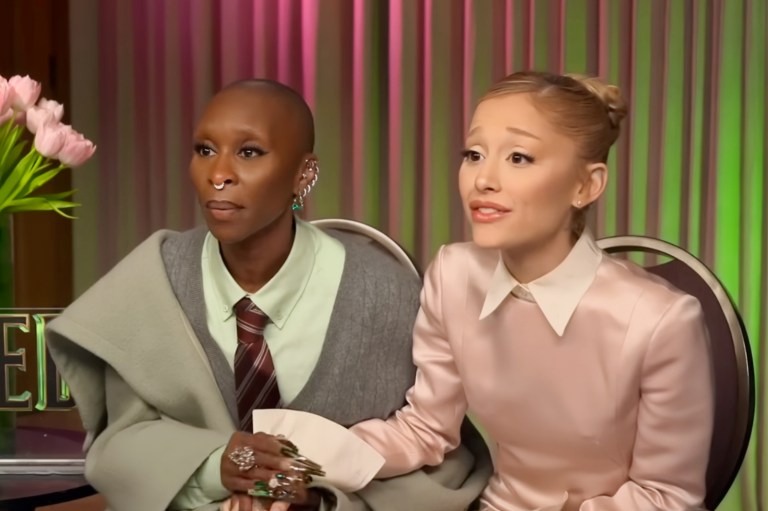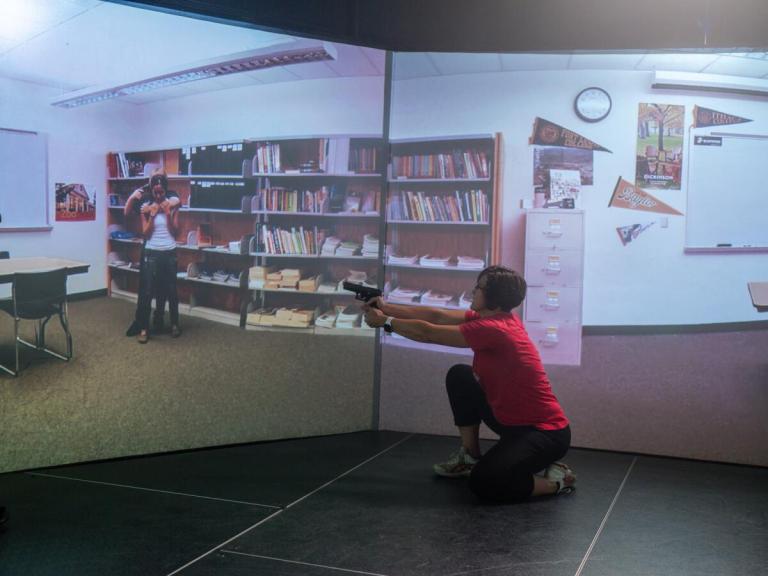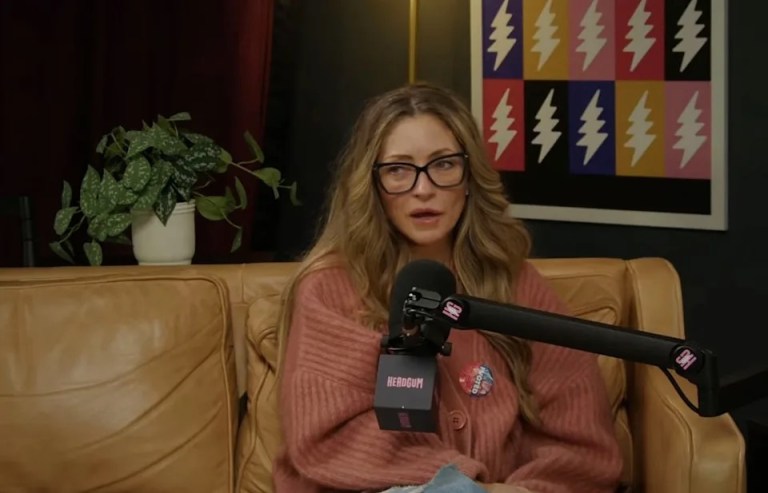
For Anyone Who Doesn’t Feel Like They’re Capable Of Being In A Relationship

I don’t like to admit this to myself, but I don’t know if I’m capable of being in a relationship.
This doesn’t quite add up and I know it; I’m more needy than I am avoidant when it comes to love. I want commitment and security and stability. I idealize the kind of happiness that comes with a healthy relationship. I look at some of the couples in my life whose relationships are governed by kindness and generosity and mutual support, and I think to myself, I want that.
But if I wanted that so badly, then wouldn’t I have settled down by now? Wouldn’t I have spent at least some part of the last seven years in a relationship?
My only labeled relationship was my senior year of high school and it lasted five months. To call it a real relationship is laughable, because we were young and it was more of an exploratory experience for the both of us than real, genuine love or connection.
It’s not like there hasn’t been anybody else since then. I’ve met a small handful of people who I really wanted to be with, two of them particularly memorable. But here’s another thing I don’t like to admit to myself: if someone I wanted to be with were to truly want to be with me, I don’t know that I would want to be with them anymore.
While there’s a part of me that so painfully wants predictability and reliability and a sense of permanence, there’s another part of me that is at the very least equally as strong. It’s not the part of me that’s “emotionally unavailable,” that part of me dictated by all the painful experiences of the past, though I’m sure that’s part of it too. It isn’t the part of me that so belongs to myself that I just don’t have room in my life for a relationship, though I’ve considered this a factor as well. I don’t know that it’s so simple as the part of me that’s driven by fear of settling down, or fear of ending up with the “wrong” person, but I think those are real and true too. It’s the part of me that’s driven by desire.
Relationship therapist Esther Perel describes the impossibility of this dichotomy with an exploration of “two fundamental human needs: on the one hand, our need for security, for predictability, for safety, for dependability, for reliability, for permanence. All these anchoring, grounding experiences of our lives that we call home. But we also have an equally strong need – men and women – for adventure, for novelty, for mystery, for risk, for danger, for the unknown, for the unexpected, surprise.”
In our age of dating, we want a soulmate, a life partner, someone who loves and challenges us and at the same time retains a vibrancy, a sense of passion and intrigue. For the first true time in history, relationships are not born out of the balancing act of economic stability or some need to propagate the species. They’re born out of a romantic ideal.
What ends up happening as a result is that we ask a lot of the person we hope to end up with: “Give me belonging, give me identity, give me continuity, but give me transcendence and mystery and awe all in one. Give me comfort, give me edge. Give me novelty, give me familiarity. Give me predictability, give me surprise.”
Desire is a tricky thing. It operates under such specific conditions. It requires that the person we want be far enough away that we don’t “have” them, but not so far away that we aren’t reminded of them. It requires that the person we want have an air of mystery and power and dominance, but only at the times when we wouldn’t rather they give us protection and reciprocity and nurturing.
So if we are to get the things we want from the person we desire, we likely will no longer desire them like we first did. And if we don’t know how to shift into a space of love at that point, how to find the same joy in comfort that we found in the excitement of longing, then we’ll never quite get past that initial hump of “wanting” and into “having.”
I don’t mean “having” in a possessive sense, but something about love is, in fact, having. You’re choosing another person, which is to say that you’re choosing to have them alongside you. They’re choosing you too, which is to say that they’ve chosen to have you alongside them. And the very thing about having is that it exists, undeniably. It’s there, without intrigue or obscurity. It’s in front of you. It’s yours. Not much mystery to that.
This is where I think those of us who know desire but struggle with love tend to run into issues. This is where we want so badly to get past the one-month mark, the two-month mark, to know what it’s like to breathe relief at having been able to move into that space of having, to accept it as the next organic step, to find solace in it as we much as we find solace in desire. This is where we might start wondering if we’re just not capable of a being in a relationship.
And for all the times I’ve asked myself that question, I’m going to stick with my belief that we very much are. That whether desire is equated with immaturity or simply being human, we can learn how to choose love. That we can find desire in new ways within love, if we consciously work at seeking out ways to be surprised by our partners and give them the space to do the same with us in return.
Because the thing about choosing desire alone forever is that there will be an emptiness to our lives, a secret misery, that pulls and nags at us for the rest of our days. I don’t believe that any of us want to choose desire forever, whether we’re of the more needy or more avoidant type when it comes to love. Because desire, when really broken down into its true parts, is built on the very things that destroy love: jealousy, possessiveness, power, edacity. It turns partners into objects and conquests, something to be collected and tamed. Even if we don’t know how yet, even if we’re scared, I think we all want to choose love eventually.
Perel says that we have to reconcile our two sets of needs if we want happy long-term relationships – if we want to be able to choose love. That essentially we have to find a way to settle the paradox, to figure out a space in which love and desire can coexist. And I think the one and only way in which we can do this ends up cultivating the most beautiful, most rewarding kind of desire that exists.
I subscribe to an idea that there is an energy or release in the exact center of the space where two dual or paradoxical events become one, the product of which is more powerful than each was on its own.
In the space where staying and going become one, there is a sense of security unlike any that either could offer on its own.
And herein lies the secret to the kind of love that won’t trample the needy or scare off the avoidant: if we need to feel grounded but we also need to feel free, we have to know that we can go when we need to, to explore, to be curious, to discover – but we also need to know that we can come back to somebody, that we won’t be scolded but rather encouraged for taking the time to be within the space that is all our own, that is driven by our imagination. What we need is to be with somebody who lets us know that it’s okay and good to go, and then that it is safe to come home.
For those of us who can’t get past the initial hump of desire – who crave the fast-paced energy of the onset of new love, who are afraid of the complacency that love can so callously turn into – this might just be the only way to maintain that desire for all the years to come. It might be the only way to allow true novelty into our relationships after enough time has passed that we no longer expect it; it might be the only way to shift our perception to see the mysteries within us individually and the ones within our partners, no matter how well we think we know ourselves and them.
For those of us who fear destroying that desire by shifting into love – who fear losing our individuality by moving into togetherness – maybe what we most need to learn is how to feel security in letting the person we care about wander however far they need to, and how to have the gentleness and patience for them to know that they can always come back. Maybe we need to learn how to be that curious and ultimately homebound person ourselves. Maybe this is the only space in which we – the needy, the avoidant, and everything in between – can find ourselves finally capable of being in a relationship.![]()











